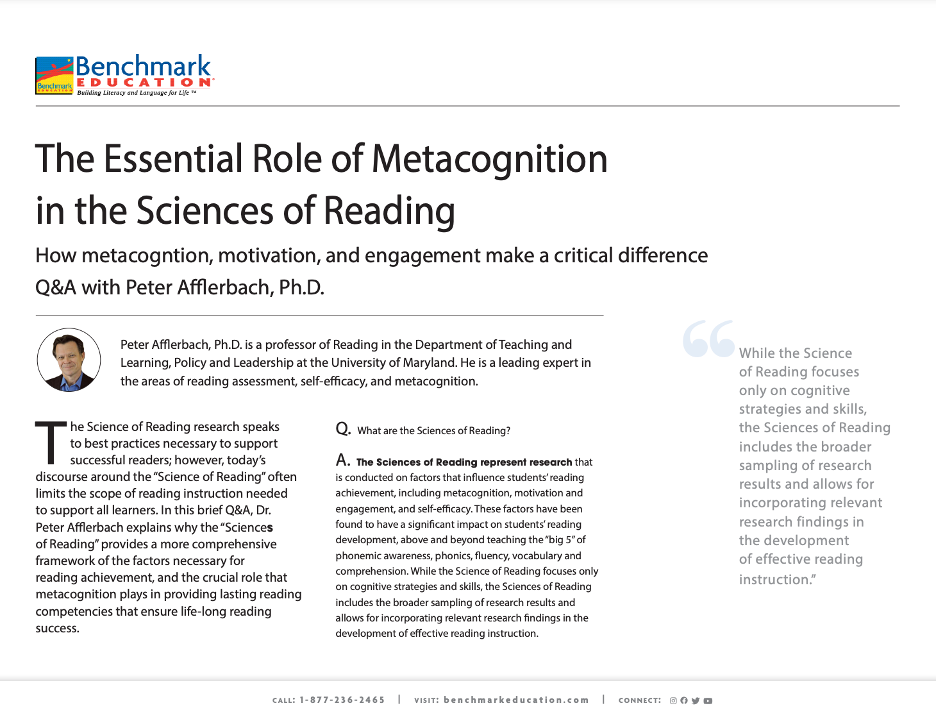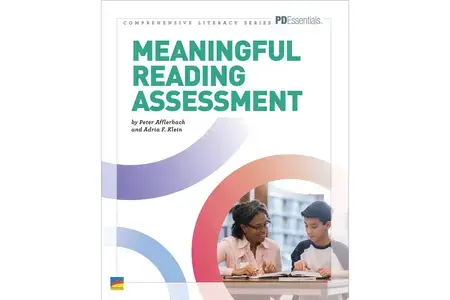.png)
About the Author
Peter Afflerbach, Ph.D. is Professor of Reading in the Department of Teaching and Learning, Policy and Leadership at the University of Maryland. His research includes focus on reading comprehension strategies and processes, verbal reporting, reading in Internet and hypertext environments, and mindfulness.
More Resources
Meaningful Reading Assessment Professional Development Book
By Peter Afflerbach, Ph.D. and Adria F. Klein, Ph.D.
Instruction and assessment ought to be like two peas in a pod. In this practical guide, Peter Afflerbach, a foremost authority on developing effective assessments, teams up with literacy expert Adria Klein to show teachers how to become fluent in meaningful assessment routines. Highlights include:
- Purposeful formative assessment, self-assessment, and student learning goals
- Using tools that reveal reliable, relatable insights
- Knowing readers as people in order to know instruction and engage
- Designing and mining daily routines to yield data
- Learning to analyze information, and sharing assessment results thoughtfully
.webp?width=300&height=59&name=logo-new%20(2).webp)

.png?width=646&height=500&name=image%20(32).png)

